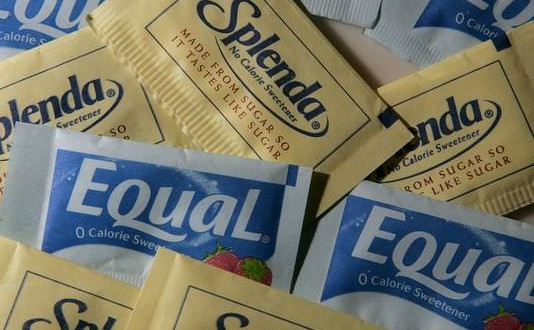The findings of a study published on September 17 in Nature suggest that consumption of non-caloric artificial sweeteners (NAS) could raise the risk of diabetes.
A study found that after just a week of consuming food and drink packed with sugar alternatives such as saccharin, sucralose and aspartame, people showed signs of glucose intolerance – the first step on the path to Type 2 diabetes.
Researcher Dr Eran Elinav, of the Weizmann Institute of Science in Israel, said: “Our relationship with our own individual mix of gut bacteria is a huge factor in determining how the food we eat affects us.”
Especially intriguing was the link between artificial sweeteners and the bacteria in developing the disorders they were designed to prevent. The findings called for a reassessment of the massive consumption of artificial sweeteners, he said.
Researchers carried out tests on mice and humans to show that artificial sweeteners could cause blood sugar levels to rise, with the mice showing much higher levels than if they had been fed ordinary sugar.
Researchers then put seven people who did not normally eat sweeteners on a seven day high-intake diet. After four days, most had raised blood sugar and altered gut bacteria.
They believe some stomach bugs reacted to the sweeteners, provoking a response similar to sugar overdose.
The research, published in the journal Nature, suggests artificial sweeteners could, in fact, be contributing to obesity-related conditions.
Co-author Professor Eran Segal added: “Regarding sugary drinks, we are by no means saying they are healthy. What we are saying is there are changes promoted by artificial sweeteners, in some individuals.
“The finding is alarming and needs to be corroborated. We were surprised by the results, which is why we replicated them many times.”
Gavin Partington, director general of the British Soft Drinks Association, said: “The majority of the studies these claims are based on are on mice and run contrary to the overwhelming body of scientific evidence. More than 40 studies have concluded that the use of low-calorie sweeteners does not lead to either an increased risk of obesity or diabetes.
“Decades of clinical research show that low-calorie sweeteners have been found to aid weight control.”
Agencies/Canadajournal
 Canada Journal – News of the World Articles and videos to bring you the biggest Canadian news stories from across the country every day
Canada Journal – News of the World Articles and videos to bring you the biggest Canadian news stories from across the country every day



